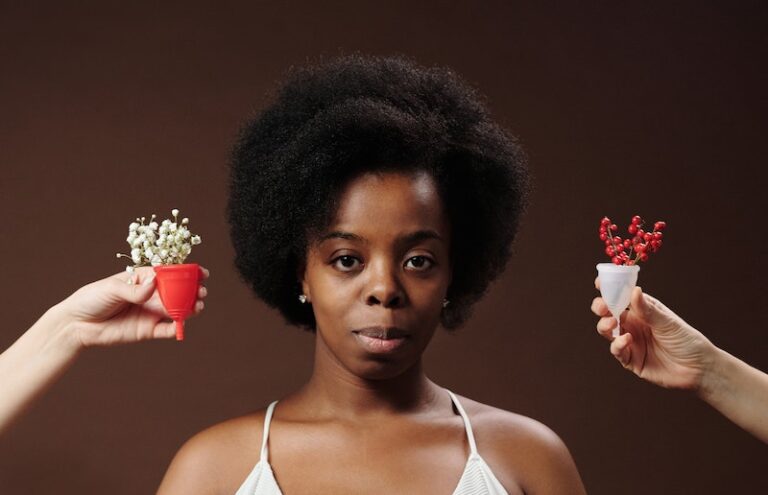It seems counterintuitive, but our libido can fluctuate throughout the month. While everyone feels horny differently, some women find that their desire for sex is at its highest in the days leading up to ovulation.
This happens because oestrogen and testosterone levels are at their highest in the follicular phase, gearing up for ovulation.
Hormones
Many women notice a change in their sex drive around the time they start their period, and this can be blamed on hormonal fluctuations. Hormones like oestrogen and testosterone play a big role in sexual desire, so when levels are low it’s no wonder that lust isn’t exactly at its peak. However, there are other factors that can affect libido too, such as stress, sleep disruption and feelings of sadness and isolation.
During the follicular phase (the first few days of your period), oestrogen and testosterone are high, making you feel horny. This is when your ovaries produce the luteinising hormone, which triggers ovulation and boosts your energy levels. Ovulation happens around day 14 of your cycle, and this is often when you feel horniest. This is because ovulation coincides with your fertile window, which makes it more likely that you could get pregnant.
The oestrogen and testosterone levels then begin to decline, but they don’t reach their lowest point until the late luteal phase, which is about a week before you actually start your period. This is when you’ll experience PMS symptoms, such as cramping, fatigue and low libido. This is because oestrogen and progesterone are preparing your uterus to shed its lining and trigger your period. So, even if you’re feeling horny in this phase, it’s best to be extra careful and use a condom to ensure you don’t get pregnant.
Lifestyle
Many women feel a heightened desire for sex around the time of their period. Although it may not happen every month or for everyone, it is a fairly common occurrence. During the follicular phase, oestrogen and testosterone are at their highest levels. These hormones gear the body up for ovulation and boost energy and confidence. It’s also a fertile window, so if the opportunity presents itself, then it could be the perfect time to seduce your partner or go solo.
The last week of your menstrual cycle is when you might feel the strongest urges for sex. Although ovulation occurs mid-cycle, the horniness experienced in the final days of the follicular phase is usually more noticeable and longer lasting than other times during the cycle. During this time, your cervix is dilated and you have increased natural lubrication. This combination makes it easier for your partner to penetrate your body, leading to a higher orgasm potential.
However, if you are on the birth control pill, it can neutralize this natural influx of hormones that would normally lead to increased sex drive during your menstrual cycle. It’s also possible that your physical changes (such as bloating and cramping) and mood swings can impact sex drive, too. However, you shouldn’t let these factors prevent you from enjoying your sex life!
Arousal levels
During the follicular phase, you might notice that your libido is a bit higher and sexier than usual. This is due to the hormones that are circulating in your body at this time, including estrogen and progesterone. These hormones help increase blood flow to the pelvic area, which can be very stimulating. It’s also thought that these hormones help trigger orgasms during sex.
However, don’t expect this sexiness to last for the entire follicular phase, or even into ovulation. As the ovulation cycle progresses, the level of these hormones decrease and this can lead to decreased sex drive. Typically, you’ll find that your sexual desire peaks in the week before your period starts.
While it may seem counterintuitive, it’s actually completely normal to feel horny before your period. In fact, this sexiness is a sign that your body is ready to reproduce. This is why it’s so important to maintain a healthy sex life during this time of the month.
As the ovulation cycle progresses, you’ll likely begin to see your symptoms of PMS come back in full force, including cramping, fatigue and increased lubrication needs thanks to progesterone. However, this doesn’t necessarily mean that your sex drive is lower during this time of the month. This is simply because a surge in testosterone is occurring during the ovulation phase, and this can help boost your libido.
Safety
It’s not completely clear why women feel more horny during this time. Maybe it’s the hormones or the cervical changes or the extra lubrication, but regardless, it’s totally normal to feel that way. The best part is, you can enjoy your sex no matter what stage of the menstrual cycle you’re in — as long as you’re both comfortable and use the proper protection.
One theory is that the bloating from PMS puts pressure on the G-spot area and makes it easier to orgasm. Some women also report that having sex before their period causes their periods to start later, but it’s really up to you and your partner to decide what works best for both of you. Just be sure to communicate during sex so no surprises occur.
You can track your libido, as well as your cervical mucus and PMS symptoms, with the Natural Cycles app. It’s an amazing tool that helps you get a better understanding of how your body works and can help you take the necessary precautions against pregnancy and sexually transmitted diseases. If you’re a woman who isn’t sure how to track your sex drive throughout the month, you can always ask your partner about it or talk to a healthcare provider. They’ll be happy to answer any questions you may have.
See Also:



